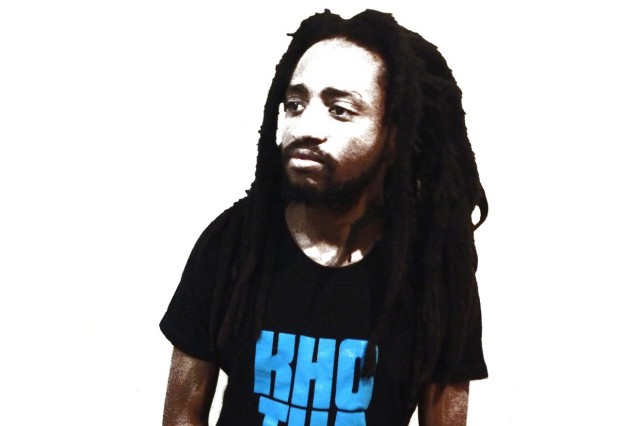
Two weeks into his new job, Mokgethwa Mapaya screwed up.
It was 2009, and he was working in IT at Liberty Life, a financial company based in Johannesburg. While using their systems, he accidentally created a feedback loop in a messaging service they were using. If you were on the company's development team that day, you would have gotten 500 text messages, all at once.
Fortunately, Mapaya had understanding bosses. He wasn't fired. But a seed of an idea had been planted.
Mapaya grew up in Limpopo, one of the poorest provinces in South Africa. When he was a teenager, he became a rabid fan of local hip-hop, bumping tracks from groups like Skwatta Kamp. After moving to Johannesburg, he tried to find their CD in local record stores and became frustrated when he couldn't. Nor could he easily access their music online. Internet penetration in South Africa has historically been extremely poor—as of May 2012, only 8.6 million people out of a population of nearly 50 million had access, according to research company World Wide Worx, and bandwidth rates have always been appallingly slow.
But the triple-figure text-message bomb at his company made Mapaya think. What if there was a way for people to access local tunes on their cellphones—of which there are over 29 million active users?
Today, Mapaya is the owner of one of the hottest properties in African music. It's called KasiMP3—'kasi' being local slang for 'township'—and three million songs have been downloaded from it, with just under 50,000 unsigned artists offering their music. A staggering 90 percent of people who access the service do so on their phones, downloading local hip-hop, dance, kwaito, and gospel.
"When I started, I didn't want to create a global brand," Mapaya says. "I just wanted a place where you could get local music. And we broke a lot of boundaries—the music industry didn't have a product like this. It just happened that the way I designed the product made it work well in South Africa."
KasiMP3 works because it's incredibly simple. Logging on, you're presented with a mobile-screen-friendly chart listing the most downloaded tracks. You can preview and download songs with any mobile device that has Internet access through a phone network. The service works on computers, too, allowing regular downloads of songs. Artists don't pay a cent to sign up—they earn royalties from every download, with the site making its money from banner advertising.
That's not to say KasiMP3 had an easy birth. Mapaya originally marketed it as a service named Shipa (local slang for 'shop') and offered tracks at five Rand (50p) a pop, downloadable by text message. It failed early on, struggling to attract customers, with artists preferring free services like MP3Twit. The text messaging service, while initially the core of the idea, didn't survive.
He also faced indifference from investors—and when he did get the service up and running, he was accused of piracy. Artists had been posting unauthorised remixes of big-name songs on the site, and it wasn't long before local label Soul Candi Records came calling, threatening to report Mapaya to the industry body RISA (Recording Industry of South Africa)—despite his promises to delete the tracks. He even claims he offered RISA administrative control of the site, allowing them to nix any tracks they saw fit. The battle forced a temporary shutdown while Mapaya regrouped.
But what saved KasiMP3 was a choice to focus on unsigned artists. There was no point, Mapaya realized, in bothering with major labels when there thousands of talented, unsigned rappers making music. "The good thing about the unsigned artists is that you can build something quickly—there's a lot of them out there," he says. "The big artists will upload their songs everywhere, and promote their music in general—but an unsigned artist will upload their track to KasiMP3 and then go and promote the site on Twitter, in the streets, wherever. In a way, the up and coming artists are the marketing arm of the business!"
Wired independently contacted Siya Shezi, whose thumping track Is'Deleli was number one on the site's download charts at the time of writing. Despite only being signed up for a month, he's managed to clock over 10,000 downloads of his three uploaded songs, with Is'Deleli taking just under 4000 of those. "I'm getting mad love on KasiMP3," he says. "I heard about it from a friend—a rapper from, let's say, the deeper side of Soweto—and I'd also seen it on Facebook."
Shezi hasn't received any royalty payments from the site yet, but says he knows several people who have. "At the moment, I'm just using the site to reach my fans. I leave the financial side to my management team."
Mapaya got what he wanted: a place where anyone can get local music, no matter how obscure the artist. "I don't want to create a site that will become the most-used site on the net, or top ten, or whatever," he says. "I want a site that can work outside of the [music] system and give artists a chance."
reader comments
21